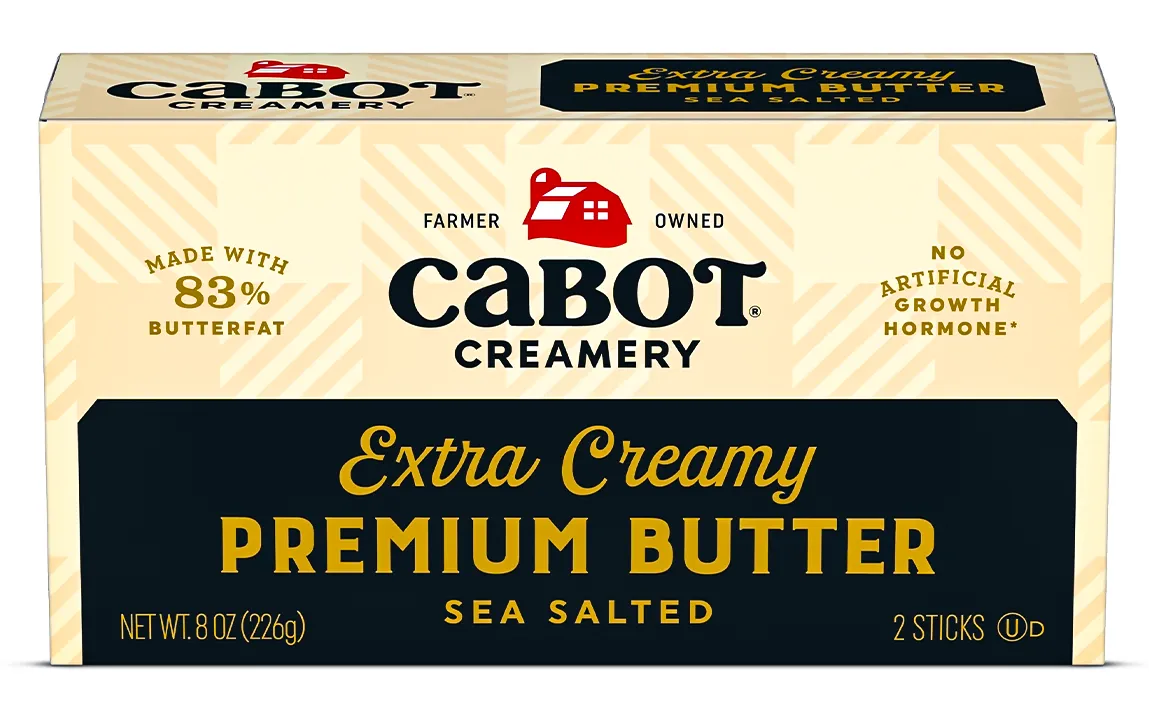The well-known dairy company, Cabot Creamery, is in a difficult position after recalling over 1,700 pounds of Extra Creamy Premium Sea Salted Butter. Routine testing revealed higher-than-acceptable amounts of coliform bacteria, which raises the possibility that the product was tainted with feces and led to the recall.
189 cases of 8-ounce packets, each containing two 4-ounce sticks wrapped in cardboard, are impacted by the Cabot Creamery butter recall.
The following information is carried by the affected products:
Best By Date: 09/09/25
Lot Number: 090925-055
Item #: 2038
UPC: 0 78354 62038 0
The butter was distributed over seven states: Arkansas, Connecticut, Maine, New Hampshire, New York, Pennsylvania, and Vermont. However, the company indicated only 17 packages reached store shelves, and all were sold in Vermont.
The remaining 99.5% were recovered before reaching consumers. Agri-Mark, Cabot Creamery’s parent company, indicated the contamination was found and quickly resolved.
They informed the public that “no other products were impacted” and that the Cabot Creamery butter recall has not resulted in any illnesses or customer complaints in a letter to USA TODAY.
The Food and Drug Administration (FDA) classified the matter as a Class III recall. A Class III recall is used when a product will not result in serious health problems, but there is a likelihood of adverse effects when the product is ingested due to quality or safety issues.
So, what is coliform? Coliform bacteria are common in the environment and mammal intestines, according to the Washington State Department of Health. Although they are mostly harmless by themselves, they can be a sign of potentially dangerous bacteria like E. coli.
Regardless of how plausible those arguments may be, medical professionals emphasize that there is no substantial health risk associated with the butter in question. Nevertheless, in the context of food safety, particularly with regard to food products that are shipped to kitchens across the United States, even the slightest indication of contamination calls for attention and action.
If you’ve purchased Cabot Creamery butter recently, look for the label. If your butter matches the lot identified in the recall, return it to the grocery store or dispose of it safely. Agri-Mark did report a formal press release without disposal instructions, nonetheless, it may be best to err on the side of caution.
While the Cabot Creamery butter recall is alarming, it also highlights the scrutiny associated with food production and how differently regulators handle market withdrawal or rapid recalls when an issue is suspected.
For the moment, butter aficionados can feel better about knowing that most of the contaminated products were intercepted before they sat on kitchen tables.



